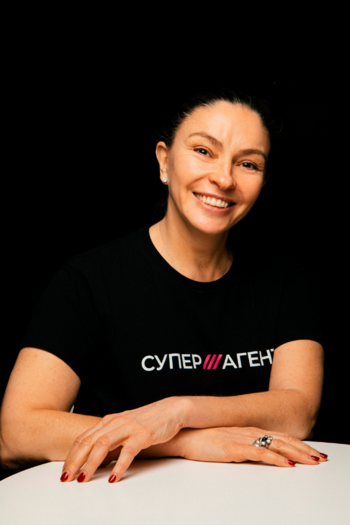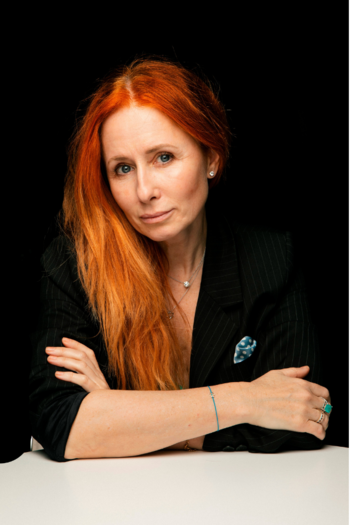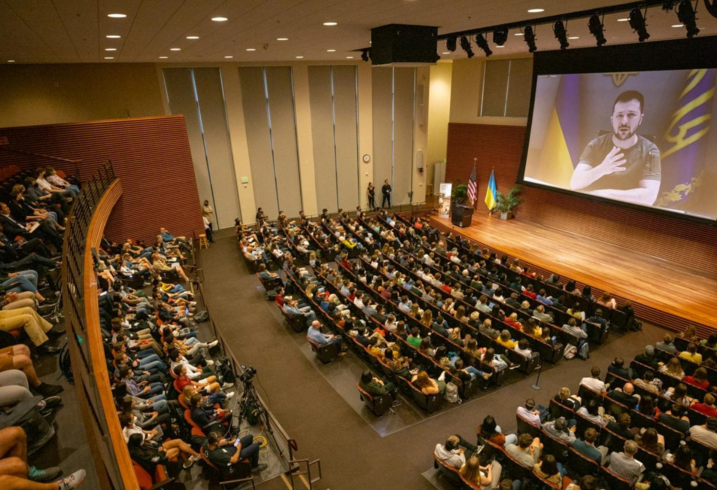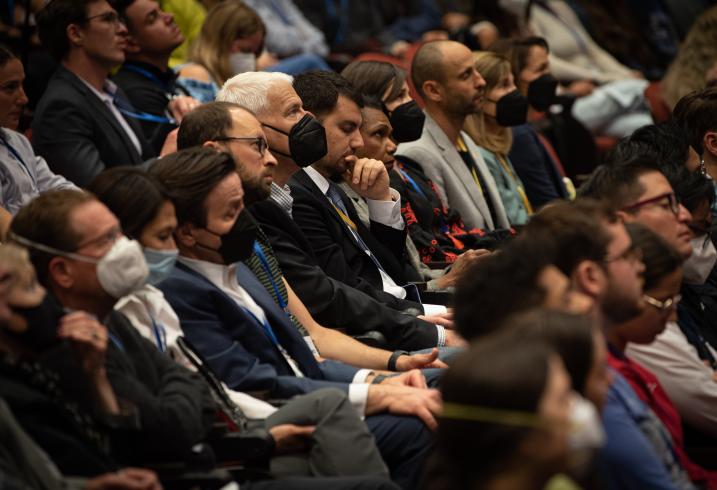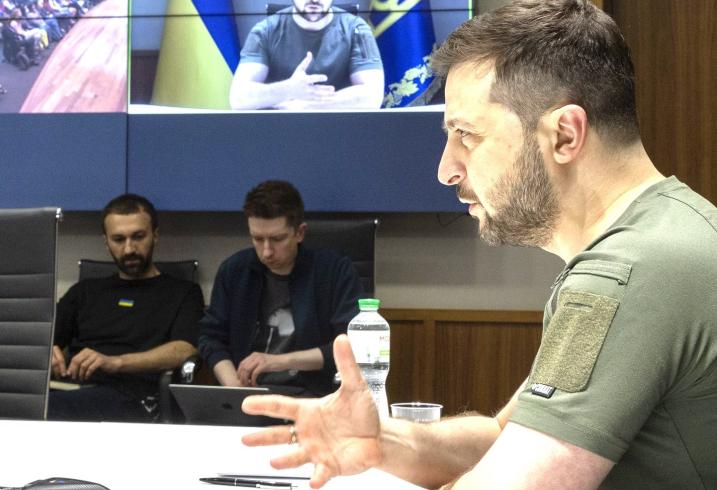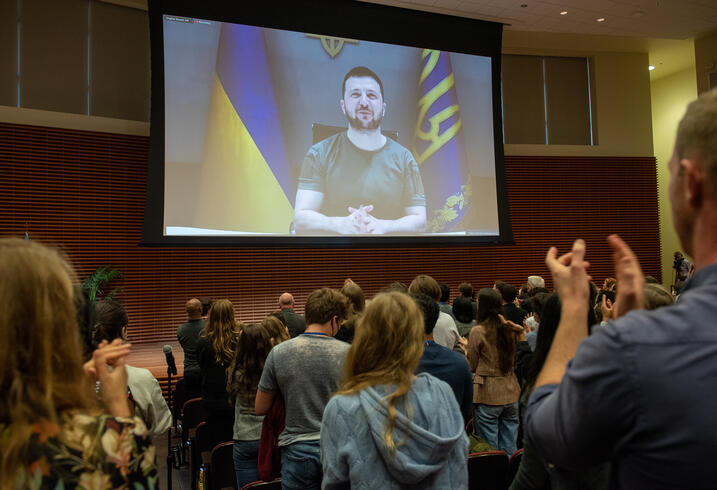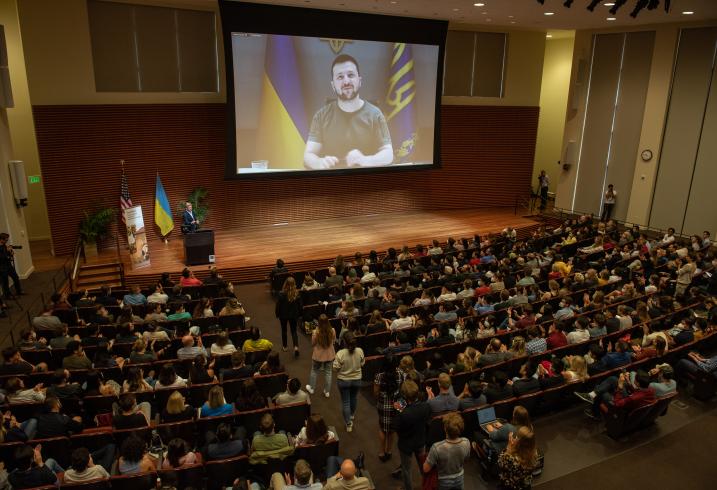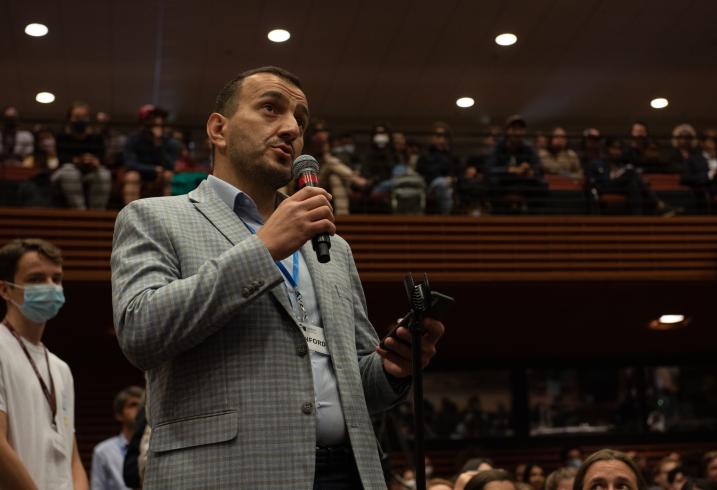The Center for International Private Enterprise (CIPE) and Stanford University’s Center on Democracy, Development and the Rule of Law (CDDRL) cordially invite you to attend their culminating event, featuring the six Local Democracy in Action Grantees (LDAG). This event will be a discussion on the outcomes and lessons learned by the LDAG grantees.
The LDAG grants were designed to bring together the Leadership Network for Change (LNC) and CIPE partners to work across industry, sectors, and borders to introduce local democratic approaches, analysis, research, or dialogue to improve the way in which local communities solve today’s greatest democratic challenges.
The LDAG program is the product of close collaboration between CIPE and CDDRL. Below are descriptions of the six LDAGs, and their unique local solutions to the greatest democratic challenges:
Ensuring Public Accountability Through Tailored E-Government (Ethiopia)
CIPE and LNC alumni Wondwossen Mitiku, Getachew Teklemariam, and Begashaw Tizazu worked to strengthen the use of digital technology for public participation and accountability in Ethiopia. Through research and dialogue with e-government representatives in Estonia, South Korea, and Tunisia, the team developed local advocacy strategies that promoted greater public participation and accountability of e-government services in Ethiopia. The team developed a policy paper capturing their recommendations and organize a workshop promoting their findings.
Democracy Podcast Series (Georgia)
In Georgia, the Economic Policy Research Center (EPRC) and Radio Liberty collaborated to organize a series of podcasts and lectures to strengthen public understanding of important issues facing Georgian society. EPRC and Radio Liberty hosted leading experts to foster discussion on a diverse set of issues facing Georgia and the wider region. Topics included democratic and economic development, economic security, democracy and technology, and Euro-Atlantic integration.
Data Protection Regulation Upgrades (Kazakhstan)
LNC alumni Nino Evangenidze and Ruslan Daiyrbekov led a virtual study tour of Georgia’s development and implementation of the nation’s data protection regulatory regime. Evangenidze and Daiyrbekov led a group of policymakers and think tank leaders to identify data protection best practices and lessons learned from Georgia’s experience. Following the study tour, formal recommendations were developed to inform a draft data protection law in Kazakhstan.
Enhancing Decision Making and Transparency in the Public Procurement Process (Lebanon)
The Lebanese Center for Policy Studies (LCPS) collaborated with LNC alumni Mohamad Najem and Rabih El Chaer to produce policy recommendations on enhancing the e-procurement system in Lebanon. To inform their work, the team met with Ukraine’s e-procurement system administrators to learn about the country’s system and identify lessons in its development and implementation. Based on their findings, they produced a policy paper outlining their recommendations and shared it widely with policymakers, journalists, and civil society representatives in Lebanon.
Strengthening Technology-Driven Democracy Through Robust and Digitally Secured Civic Space (Nepal)
The Accountability Lab Nepal (ALN) and Digital Rights Nepal (DRN) collaborated to develop a toolkit for civil society organizations to equip them with the ability to manage digital security threats and vulnerabilities while defending democracy. ALN and DRN conducted desk research, disseminated a survey, and organized workshops with key stakeholders to identify best practices and develop tips and advice to navigate the internet safely. Through their efforts, ALN and DRN helped to build a more robust and digital secure civic space in Nepal.
Enhancing the Quality of Decisions and Creating Local Coalitions Around Key Reforms (Ukraine)
The Ukrainian Healthcare Center (UHC) and LNC alumni Iryna Nemyrovych, Matvii Khrenoc, and Pavlo Kovtonyuk worked to create local coalitions in several Ukrainian municipalities to foster dialogue and promote strategies to improve the country’s healthcare systems. Through this advocacy work, the team enhanced local democratic engagement and strengthened the transparency and quality of medical services.


